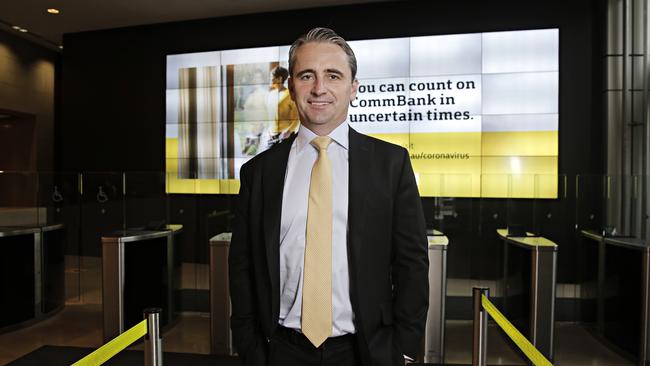
Commonwealth Bank’s deal to jettison a majority stake in Colonial First State will ripple through the industry, as KKR & Co prepares to become a force in the highly regulated $3 trillion superannuation system.
The transaction has implications on a number of fronts for CBA’s rivals Westpac and National Australia Bank, as they seek to execute their own sales of superannuation and investment divisions. It also sees a private equity heavyweight enter the fray in the superannuation industry as rationalisation starts to gather momentum.
The deal, unveiled on Wednesday, sees CBA offload 55 per cent of CFS to KKR in a $1.7bn transaction. It requires the banking regulator’s blessing and that of the Foreign Investment Review Board, which in a turbulent COVID-19 world will take a lot longer than is typically the case.
Private equity has not had a notable presence in the regulated financial services industry in this market, as the Australian Prudential Regulation Authority has taken a cautious approach. But that could be about to change.
One exception is Crescent Capital’s stake in ASX-listed life insurance and wealth group ClearView.
In other markets, private equity firms have been much more active in financial services, including as owners of banks.
JC Flowers & Co, for example, which counts former Westpac boss David Morgan as its chairman for Europe and Asia, has six current and past investments in banks.
One of those is Japan’s Shinsei Bank, where it has sold down parcels of its holding in recent years.
At KKR, financial services is listed as a core industry across the US, Europe and the Asia Pacific.
Its investments in the sector in Australia include Findex, Latitude, non-bank lender Pepper and several companies that sit within the portfolio of New York-based Focus Financial.
For CBA and chief executive Matt Comyn, the KKR deal provides a staged exit ahead of two of its major rivals, although it is not without risks.
When fielding questions from this columnist, Comyn wouldn’t go into detail about the indemnity included in the deal or whether it was capped. The indemnity sees CBA take responsibility for current regulatory issues, customer remediation, and any legal action relating to CFS.
“The indemnity was important to KKR as it would be for any partner. We’ve been very focused on resolving any of the outstanding remediation and resolving litigation that may flow from that, and that will continue to be a focus and our responsibility,” Comyn said.
The transaction agreement includes optionality around how CFS’s share register will look in the future, including KKR taking a larger stake down the track.
While the typical time frame for private equity investments is three to five years, Comyn said KKR’s mandate allowed for a hold period of CFS of up to 12 years.
“Their time horizon varies, depending on the asset class, and having spoken to one of the founders recently it can be up to 12 years, and clearly it can be shorter duration.
“That is going to be dependent, for both parties, on the degree to which we can unlock value.
“Both parties are equally committed to making sure it’s a successful partnership.”
Over at Westpac, it only last week moved a string of its unloved businesses into a new unit which will be led by rejoining bank executive Jason Yetton. The new division will include wealth platforms, super, retirement products, investments, insurance, auto finance and its Pacific unit.
Assessing alternative ownership of those businesses is a key part of Yetton’s mandate, a similar role to that he held at CBA ahead of it shelving plans to spin off CFS together with its mortgage broking arm.
KKR’s new alignment with CBA adds a new dynamic to Westpac’s strategic road map and NAB will also be watching closely to see how the new tie-up plays out.
NAB’s divestment of MLC has been hamstrung by delays linked to its customer compensation program and efforts to separate the division from the mothership.
This column understands Westpac’s CEO Peter King has fallback plans in place should he come up against roadblocks, or subdued buyer interest, for the businesses he has flagged as being under review, or being prepared for potential sale.
For general and life insurance that includes reinsurance deals that would free up capital, and for car finance a last resort option would be to stop writing new business. That would see the loans run off over a number of years, which also frees up capital.
All eyes on Friday, though, will focus on how Westpac plans to defend Austrac’s legal action alleging 23 million breaches of financial crimes laws.
Coghill resurfaces
Former UBS deputy head of research and insurance analyst James Coghill has re-emerged in the industry with a gig at Insurance Australia Group.
Coghill started with IAG this week and will eventually take the reins as executive general manager of investor relations, when Simon Phibbs retires toward the end of the year.
Coghill left UBS after nine years in November and joins a spate of analysts that have decamped to the investor relations industry in the sector they covered.
Rival QBE Insurance has former Macquarie Group insurance analyst Tony Jackson running its investor relations function.
Macquarie’s head of investor relations Sam Dobson, started in that role almost three years ago, after a long stint as the firm’s local head of transport research.



